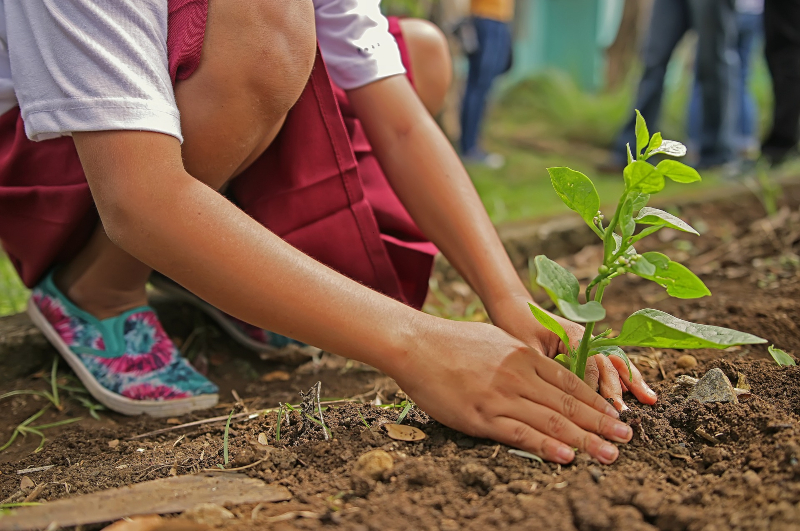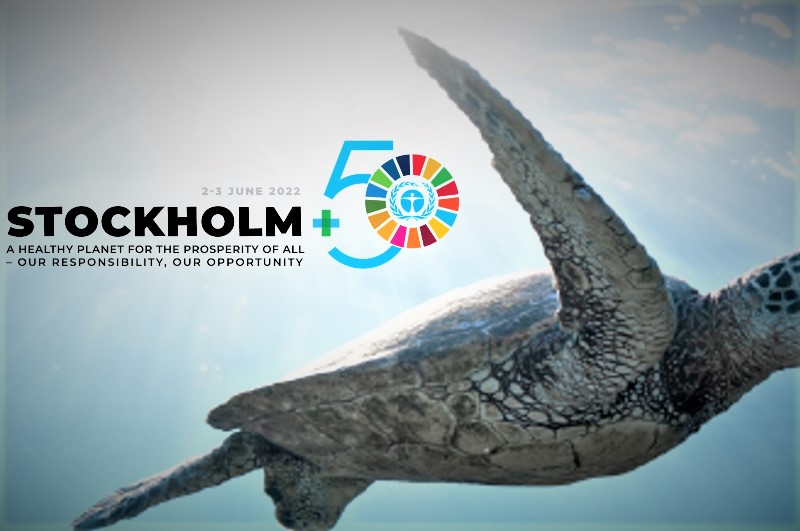



During this Week of the Environment, from the 30th of May leading up to the 5th June, the World Environment Day, nations of the world gather at the Stockholmsmässan Centre in Stockholm, the largest exhibition facility in the Nordic region, to once again talk about and plan action to heal the now very well-known broken relationship between human beings and the natural environment.
From 2nd to 3rd June, nations gather for a high-level UN Conference co-hosted by Kenya and Sweden on the Environment dubbed “Stockholm+50: a healthy planet for the prosperity of all – our responsibility, our opportunity” (Stockholm+50). The Stockholm+50 event this year will provide leaders with an opportunity to draw on 50 years of thinking and reflection on multilateral environmental action to protect the planet, safeguard life and uphold justice for the poor and marginalised, for indigenous groups, and for future generations.
Participants from all nations of the world gather in the beautiful lush green surroundings of the Centre in the Swedish summer, looking at a clear blue sky and the sparkling waters surrounding the beautiful Stockholm. Our hope is that as we gather in the midst of such beauty and inspiration, we do not forget the polluted water and air and depleted fisheries, the flooding and drought in many poorer regions of the world. For all those regions, what we fail to do for our environment or what we do against the environment means no life, no food, no housing, no health, no water, and all else that is needed for life and thriving, for the poor of our world. Our planetary crises are humanitarian and wellbeing crises and planetary crises undermine and impact the achievement of SDGs and undermine future development opportunities.
It is exactly fifty years ago when from 5th to 16th June 1972, nations of the world gathered for the first United Nations Conference on the Human Environment in Stockholm. It was the first world conference to make the environment a major issue of concern. The participants adopted a series of principles for sound management of the environment including the Stockholm Declaration and Action Plan for the Human Environment, which contained 26 principles and placed environmental issues at the forefront of international concerns. This first UN meeting on the environment was the beginning of a dialogue between industrialised and developing countries on the inextricable link between economic growth, the pollution of the air, water, and oceans, and the well-being of people around the world.
As we gather in Stockholm, as several nations but one people on one planet, I am reminded of the powerful words of Kofi Annan at a similar gathering twenty years ago in Johannesburg when he called on all of us toward greater “responsibility for each other, but especially the poor, the vulnerable, and the oppressed — as fellow members of a single human family.” Kofi Annan further called for responsibility for our planet, our home, that nurtures and supports life, well-being, and progress. Most importantly he called for responsibility for the future of planet earth and for future generations, for our children, and our children’s children.
Fifty years down the line from the first UN Conference on the environment, that sense of responsibility and responsible action remain a pipe dream for humanity. When I say this, I am thinking of what is going on in places where I am coming from in Africa despite the last fifty years of conversation on healing our relationship with the environment. Here, I reiterate what we reported in our JENA Policy Brief when we called for the need for rechannelling SDRs for climate finance to build resilience and support adaptation in poorer regions in Africa and the entire global South. We shared about the recent destruction in southern Africa of the deadly Tropical Storm Ana, which hit the region early this year causing massive destruction of infrastructure and housing and loss of lives in Malawi, Madagascar, and Mozambique. In the last few years, going further up, the eastern parts of Africa have experienced serious global warming and droughts with millions of people threatened with famine. Increasing rainfall variability in places like northern Kenya, the Sudan, and Somalia, is leading to more frequent droughts and floods, both of which cause severe hardship for the countries’ majority poor who often live in rural areas in very poor housing and often without other basic infrastructure like roads and electricity and without any social protection. Drought and extreme heat lead to serious destruction of crops and force pastoralists to seek new pasture for their livestock with serious consequences for peaceful co-existence among communities. This is in addition to the temporary scarcity of land and water leading to rising food prices limiting populations’ access to food.
As Pope Francis reminds us in his Laudato Si, if any reminder were needed of what happens when we fail to act responsibly and protect life and the long-term future of our planet, it can be heard in the cries of the earth and the millions of poor souls who are bearing the brunt of our irresponsibility. Twenty years since Kofi Annan called the world to respond, responsibility remains the one word that should be on everyone’s lips at this year’s summit once again if we hope to change the fate of humanity and the planet but especially that of the poor and vulnerable after our time here in Stockholm. Individual, corporate and social responsibility is the basis for progress. It should be the key defining factor for the Stockholm +50 Conference and beyond. But as can be seen, responsibility is still not central to the way we live, consume, govern and look out for others, human or non-human.
What comes in the face of all of us gathering in Stockholm is the injustice that continues to abound in our world. In the last 50 years since the first UN Conference on the Environment in 1972, some have become wealthier and more prosperous but with serious consequences for vulnerable groups and communities. The world is still home to serious environmental injustices, both current and future. In our world, our Common Home, while others are well sheltered from harsh impacts of weather events, others are vulnerable to them and on account of them lose lives, livelihoods, and a future. This ugly reality must be very central to the Stockholm Conference this year. At Stockholm+50 nations must work to install justice, promote reconciliation, and restore trust between developed and developing nations, between state and non-state actors, across generations, and between the powerful and marginalised groups such as indigenous people and women and local communities.
The breakdown of trust due to unfulfilled commitments has led to growing impatience and anger. The time has come to right the wrongs of growing and deepening inequality, irresponsible consumption choices, and unjust financial systems, both global and local. The flourishing of a few cannot only be limited to what they do in their lifetime. It depends on life systems that everyone depends on including generations to come. We have engaged a model of development that has worked for the few but is flawed for the many. We have engaged on a path to prosperity that despoils the environment and leaves a majority of humankind behind in squalor.
As we have now been told several times, we now face a triple planetary crisis, which refers to the three main interlinked issues that humanity currently faces: climate change, pollution, and biodiversity loss. To heal this crisis, we need holistic approaches based on changes in our behaviour, our economy, our production and consumption systems, and our financial systems that are so misaligned with environmental and social goals.
But even though we still need conversion, we must be encouraged by the fact that we have already taken steps in this direction though we still have a long way to go. So, as we gather in Stockholm, we must do more. What we need is to scale up action rather than make new commitments and we must move from promise to delivery. Since 1972 we have made countless agreements and declarations. These include the 1972 Stockholm Declaration, the Kyoto Agreement, the Millennium Development Goals, the Paris Agreement, and the Sustainable Development Goals, among many others. Sustainability is the one key goal and condition for true development. The focus from now on must be on implementing the many agreements that we have reached together.
Of course, there are concerns around capacity gaps, technology, and action gaps to deliver the needed actions for sustainability and justice. But the richest countries, which in fact contribute disproportionately to global environmental problems must lead the way. They have what it takes; the wealth, the technology, and the institutional capacity. What is lacking is the needed responsibility and urgency and the commitment that we need to protect life and the planet. Time is running out! We need longer-term visioning, especially toward greater engagement of the youth the key stakeholders in the development of the future.
Even going deeper, what is needed and what Stockholm+50 should usher in is more serious collective action supported by a greater commitment to multilateralism that takes seriously the inclusion of voices that need to be included especially those of the youth, women, and indigenous voices. There is a need to center action on reaching the farthest and leaving no one behind. As noted earlier, the need to rebuild trust across the spectrum, create system-wide changes, make lifestyle changes, and enhance innovativeness cannot be overemphasised. Good governance is crucial here. We need a change in governance systems, to ensure policy coherence and transparency. But what will deliver best are systemic localised solutions.
So much has been heard for the last fifty years but what is different this time is the urgency that the needed changes demand. Stockholm +50 offers us opportunities and another chance to do things right. Stockholm+50 offers opportunities to cooperate, make peace with nature rebuild trust, a chance to push the boundaries to achieve justice, and change our energy and financial systems so that we do not compromise the capacity of future generations to imagine and direct their own development. What we need is to usher in true transformation, responsibility, stewardship, and care. All these are grown and natured in human hearts and yet they must find their way into policy making and implementation, investment decisions, and in the building of economies, ‘economies with a soul.’ So, what we need to heal and protect life and our planet are good hearts full of care, concern, and compassion for the earth and for future generations. We need humanity, ubuntu!
Charles B. Chilufya, S.J is the coordinator of the Jesuit Justice and Ecology Network-Africa (JENA)
Related Articles
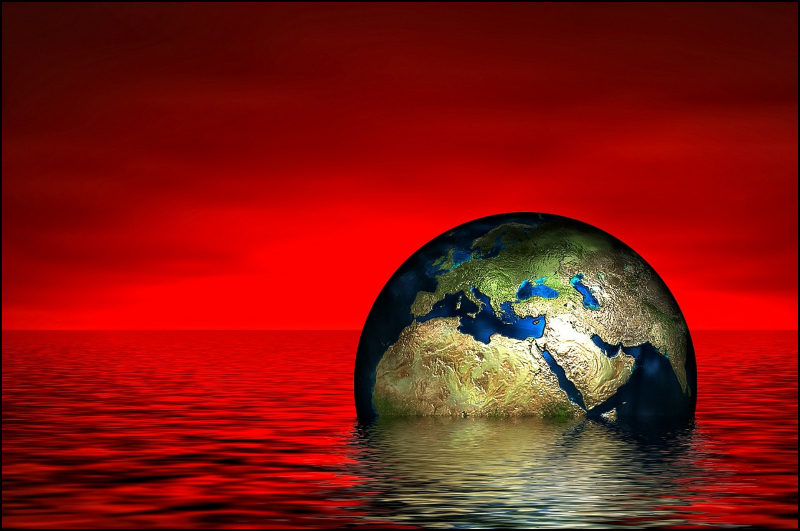

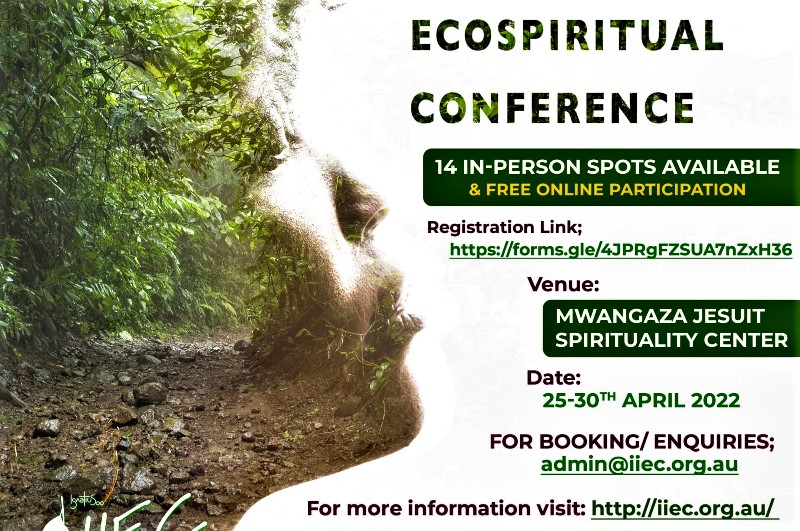
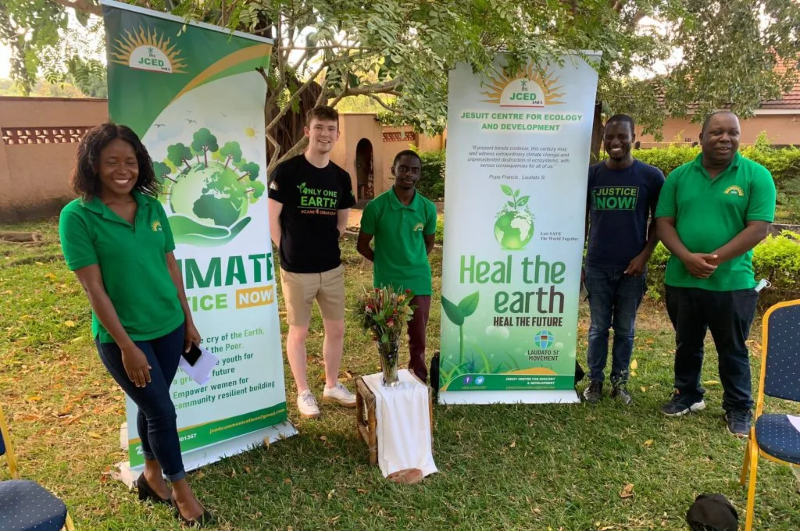

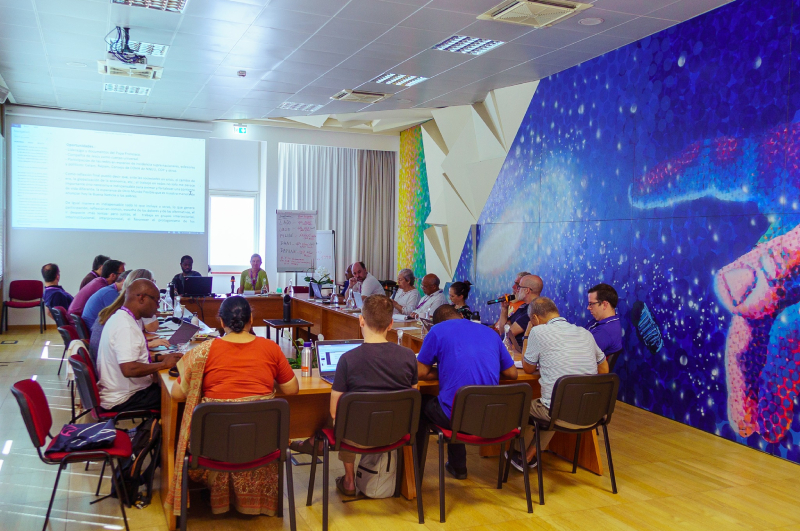
Select Payment Method
Pay by bank transfer
If you wish to make a donation by direct bank transfer please contact Fr Paul Hamill SJ treasurer@jesuits.africa. Fr Paul will get in touch with you about the best method of transfer for you and share account details with you. Donations can be one-off gifts or of any frequency; for example, you might wish to become a regular monthly donor of small amounts; that sort of reliable income can allow for very welcome forward planning in the development of the Society’s works in Africa and Madagascar.
Often it is easier to send a donation to an office within your own country and Fr Paul can advise on how that might be done. In some countries this kind of giving can also be recognised for tax relief and the necessary receipts will be issued.



